Smithsonian Student Travel | Costa Rica
Limited Spaces Remain!
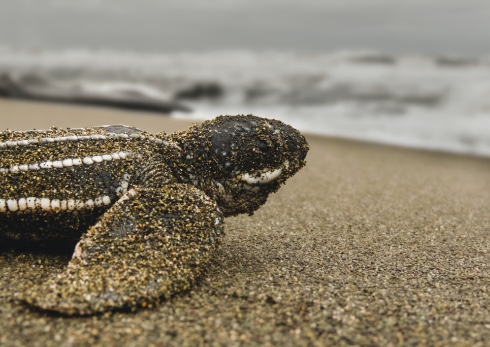
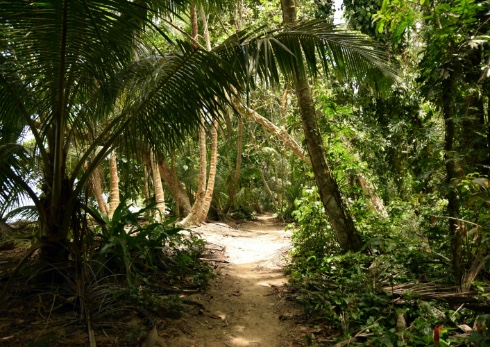

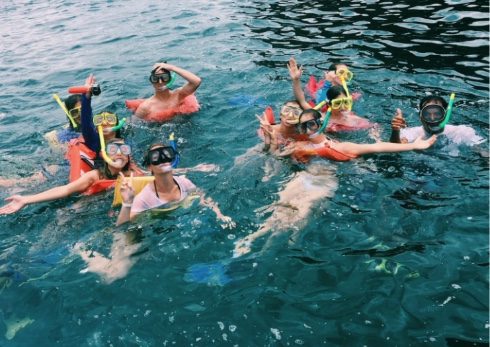
Highlights
- Assist researchers and volunteers at a sea turtle conservation organization
- Snorkel reefs at Caño Island and hike in Corcovado National Park
- Cruise the open ocean looking for signs of humpback whales and dolphins
- Explore important mangrove habitat in the Sierpe River
- Take a night hike through the jungle with expert guides
Itinerary
This itinerary represents our plan for the program. However, we may implement changes if we identify opportunities to improve the experience, to take advantage of unexpected events, or to accommodate local schedule changes.
Departure • Travel Day • Meet your student travel group and one of your trip leaders in Miami, Florida, and fly together to San Jose, Costa Rica.
Mastatal • 3 days • Spend your first three nights at a sustainable ecolodge nestled in the mountainous forest in Mastatal, located halfway between the capital of San Jose and the Pacific coast. Get to know your group and leaders, participate in an in-depth orientation, and spend the first few days learning sustainable practices and permaculture design principles, exploring barely-touched nature while you prepare for your travels to the Osa Peninsula.
Osa Peninsula • 5 days • Travel down the western coast to Puerto Jimenez, then continue by bus to an outpost for conservationists. Every year, thousands of Pacific green sea turtles nest on this beach in the small rural town of Carate. Your Smithsonian Student Travel Expert will join you for this portion of the program, enhancing your experience with their insights and knowledge. The Osa Peninsula is home to Corcovado, one of the most biodiverse national parks in the world, and the surrounding ocean harbors whales for much of the year. Interview local experts and learn about projects aimed at protecting turtles from human impact, light pollution, and changes in the marine environment. Plunge into the warm waters that surround the peninsula and get a glimpse of humpback whales and dolphins. Explore the jungle at night with expert guides in search of snakes, red-eyed tree frogs, tapirs, and other nocturnal mammals. Assist conservationists with data collection as you monitor the nests of Olive ridley sea turtles. Live like a conservationist in a solar-powered camp and sleep beneath a mosquito net in an open-air dormitory, surrounded by dense forests. Work alongside your Smithsonian Student Travel Expert as you make progress on your independent project.
Uvita • 2 days • Stay in a cozy bunk room on the coast with a gorgeous view of the Costa Rican sunset. Spend your final days in Costa Rica in search of whales from Marina Ballena National Park, explore the unique mangrove habitat of the nearby Sierpe River, and soak in the sun at the beach in Uvita. Enjoy a final dinner with your cohort, reflect on your experiences together, and present your independent project.
Return • Travel Day • Fly from San Jose, Costa Rica, to Miami with your group and a trip leader, then continue on to your final destination.
Smithsonian Student Travel Experts
A Smithsonian Student Travel Expert will join the group for four or five days of the itinerary. A professional in their field, they will tie in their knowledge and experiences with the themes of the program and share their insights and passion for the region during talks and informal conversations throughout their time with the students. Meet next summer’s expert below.

Dr. Scheffers runs a dynamic and leading biological conservation and ecology lab and has published over 80 peer-reviewed articles, many of which are in leading international journals such as Science, Nature Climate Change, Current Biology, and Frontiers in Ecology and Environment. His work has been covered by hundreds of news outlets, including The Economist, Huffington Post, National Geographic, Scientific American, and the New York Times. Dr. Scheffers has spent the last 20 years working in tropical ecology and conservation biology across the world’s tropical rainforests of Australia, Southeast Asia, Africa, and Central and South America. He has extensive experience in the field of global change biology and his research focuses on core ecological problems – often using canopy science, the degree of vertical habitat use in montane tropical rainforests, as his model system. His research also focuses on ecological responses and adaptation of a variety of taxa ranging from birds, amphibians, reptiles and insects to climate change and environmental instability.

During her graduate studies at Duke University, Dr. Bathala studied conservation biology in Costa Rica with the Organization for Tropical Studies (OTS). She has spent extensive time at biological research stations in Costa Rica and has volunteered with sea turtle conservation initiatives at Tortuguero National Park. Dr. Bathala has taught several marine ecology courses in the U.S. and led a study abroad program at the Roatan Institute for Marine Sciences (RIMS) in Honduras. She is a certified PADI SCUBA diver and has completed both day and nighttime dives in the Caribbean and Pacific Oceans. Dr. Bathala is passionate about making scientific exploration accessible and engaging for all. As an author, speaker, and educator, she actively promotes public education on environmental issues and is deeply committed to fostering STEM engagement, especially for women in the sciences. She serves on the Board of Advisors of the Sarah P. Duke Gardens at Duke University and mentors students in Duke’s Nicholas School of the Environment graduate program.
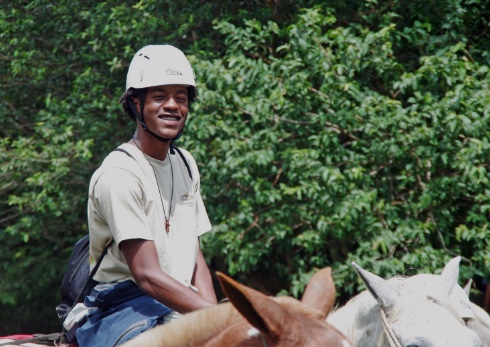
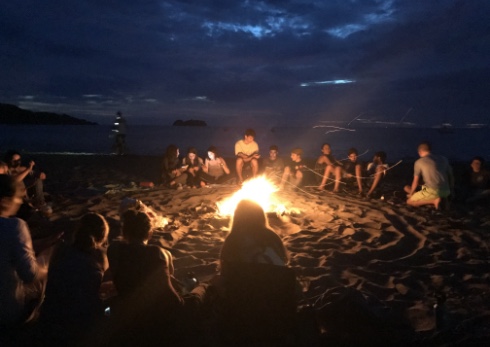
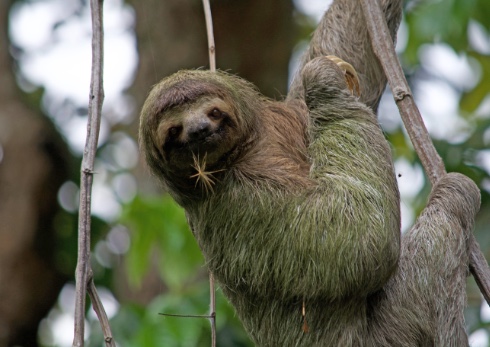
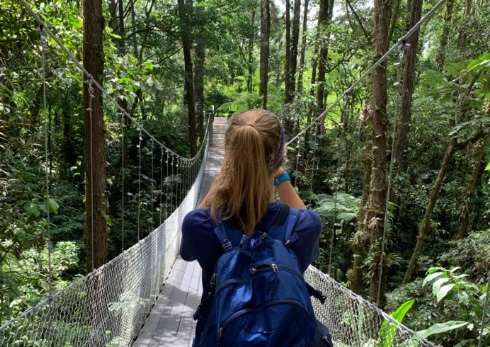
What to Expect
Physical Activity • This is a physically active summer travel program. You can expect to walk on beaches after dark for turtle nest patrols, hike in the jungle, work on hands-on projects, and raft through the jungle. You do not need to be at peak fitness to participate, but it is important that you have a desire to be physically active, and that you are excited about trying all activities.
Accommodations • We stay in various types of accommodations throughout this program, including a dormitory at a scientific research station and rustic ecolodges. Students have access to common and outside space at our accommodations for group meetings, working on projects, and socializing. Leaders reside with students throughout the program.
Climate • Costa Rica is a tropical country with two seasons: wet and dry. Summer is the wet season. It rains often in brief, heavy showers rather than all-day storms. Daytime temperatures range from 75–85°F (23–29°C), while nighttime temperatures drop to 70–75°F (21–23°C).
Meals • We enjoy all meals of traditional Costa Rican cuisine prepared and served at our accommodations.
Cuisine • Costa Rican cuisine features a hearty amount of rice and beans, and a delicious array of tropical fruits, such as papaya, mango, and pineapple, at almost every meal. A typical lunch consists of gallo pinto (rice and beans), fish or chicken, vegetables, cheese, tortillas, and fruit.
Enroll in two programs & save $1,000!
$800 tuition discount + no second application fee
